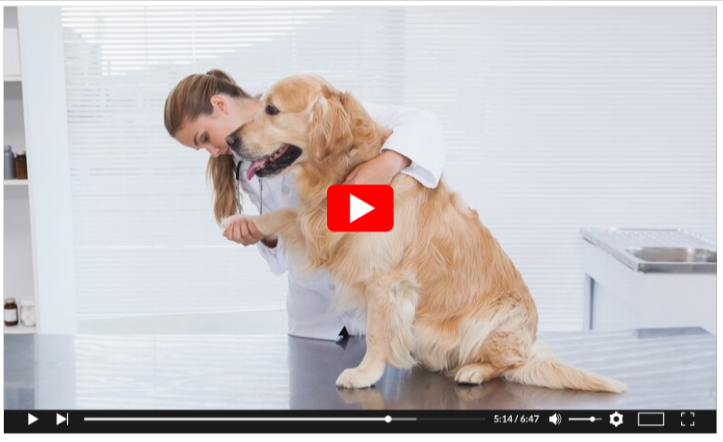Are Labs Allergic to Chicken: Symptoms, Causes & Safe Diet Tips
Labrador Retrievers, affectionately known as Labs, are one of the most popular dog breeds worldwide, prized for their loyalty, intelligence, and friendly demeanor.
However, like all breeds, they are not immune to food sensitivities and allergies. One commonly discussed topic among Lab owners is whether these dogs can develop an allergy to chicken.
Yes, some Labradors can be allergic to chicken, causing symptoms like itching, ear infections, and digestive issues. A vet diagnosis is recommended.
In this comprehensive guide, we’ll explore the possibility of chicken allergies in Labradors, including how to identify symptoms, what causes them, and the actions you should take if your Lab shows signs of a food allergy. If you’ve ever wondered, are Labs allergic to chicken? — Read on.
Understanding Food Allergies in Dogs
Before diving into chicken specifically, it’s important to understand how food allergies work in dogs.
A food allergy occurs when a dog’s immune system mistakenly identifies a specific protein as a harmful invader and mounts an immune response. This results in various symptoms ranging from skin irritation to gastrointestinal upset.
Though food intolerances and food allergies are sometimes confused, they’re different conditions. An intolerance typically involves difficulty digesting a specific ingredient, while an allergy triggers an immune system reaction.
Are Labs Prone to Food Allergies?
Labrador Retrievers are moderately prone to food allergies compared to other breeds. While not at the top of the allergy-prone list, Labs do have a genetic predisposition to developing allergies, both environmental and food-related.
According to veterinary reports, the most common food allergens for dogs include:
- Beef
- Chicken
- Dairy
- Wheat
- Lamb
- Soy
- Eggs
- Corn
As you can see, chicken is one of the leading culprits when it comes to canine food allergies.
Can Labs Be Allergic to Chicken?
The short answer is yes — some Labs can be allergic to chicken. While it might seem surprising, considering how commonly chicken is included in commercial dog foods and treats, this popularity is part of the problem.
The more exposure a dog has to a particular protein, the greater the chance they might eventually develop an allergy to it.
However, it’s important to remember that not all Labs are allergic to chicken. Many tolerate it well. The challenge lies in identifying whether your Lab belongs to the sensitive minority.
What Causes Chicken Allergy in Labs?
An allergy to chicken typically results from a hypersensitive immune response. When a dog with a chicken allergy consumes chicken protein, their immune system identifies it as a threat and produces antibodies, triggering an allergic reaction.
Factors that may contribute to this hypersensitivity include:
- Genetic predisposition: Labs with allergic parents are more likely to develop allergies.
- Repeated exposure: Continuous feeding of the same protein source increases the risk.
- Compromised immune health: An underdeveloped or overreactive immune system may overreact to certain proteins.
Common Symptoms of Chicken Allergy in Labs
Recognizing the symptoms is the first step to addressing a possible chicken allergy. Symptoms in Labs can manifest in various ways, affecting the skin, digestive system, and sometimes behavior.
The most common signs include:
Skin-Related Symptoms:
- Persistent itching, especially around the ears, face, paws, and rear
- Red, inflamed skin
- Chronic ear infections
- Hot spots (localized areas of skin inflammation)
- Hair loss in affected areas
Gastrointestinal Symptoms:
- Vomiting
- Diarrhea
- Flatulence
- Stomach gurgling or discomfort
- Loss of appetite
Other Symptoms:
- Frequent licking or chewing of paws
- Behavioral changes (irritability or lethargy)
If your Lab shows one or more of these symptoms regularly — especially after eating chicken — it might be an indicator of an allergy.
How to Diagnose a Chicken Allergy in Labs
Diagnosing a food allergy isn’t straightforward because symptoms often mimic other conditions like environmental allergies or skin infections. The most reliable method is an elimination diet trial supervised by a veterinarian.
📌 How an Elimination Diet Trial Works:
- Switch to a hypoallergenic or novel protein diet (like duck, salmon, or venison) for 8–12 weeks.
- Completely avoid any treats, flavored medications, table scraps, or chew toys containing chicken.
- If symptoms improve, gradually reintroduce chicken.
- If symptoms return upon reintroduction, it confirms a chicken allergy.
In some cases, your vet may also perform skin or blood allergy testing, though these are less reliable for food allergies than elimination trials.
What to Do If Your Lab Is Allergic to Chicken
Once a chicken allergy is confirmed, the primary treatment is avoidance. Here’s a detailed action plan for managing your Lab’s diet and health:
1. Switch to a Chicken-Free Diet
Choose commercial dog foods labeled specifically as “chicken-free” or opt for those containing novel protein sources like:
- Venison
- Duck
- Rabbit
- Salmon
- Turkey (if tolerated)
Ensure to scrutinize ingredient lists, as chicken can appear in hidden forms such as chicken fat, chicken meal, or chicken by-products.
2. Eliminate Chicken-Based Treats and Chews
Replace popular chicken-flavored treats with alternatives made from fish, beef, or plant-based ingredients.
3. Be Cautious with Table Scraps
Even small bits of chicken from your plate can trigger symptoms. Educate family members about the importance of maintaining a strict chicken-free diet.
4. Read Labels on Supplements and Medications
Many flavored chewable medications and supplements contain chicken or poultry flavoring. Request alternatives from your vet when necessary.
Managing Symptoms of Chicken Allergy
While dietary changes are crucial, you may also need to manage your Lab’s existing symptoms as its body heals.
📌 Common supportive care options include:
- Topical treatments for itchy skin or hot spots
- Medicated shampoos
- Antihistamines or anti-inflammatory medications prescribed by a vet
- Probiotics to support gut health during dietary transition
Preventing Future Food Allergies in Labs
Although you can’t entirely prevent food allergies, certain strategies may help reduce the risk:
- Rotate protein sources in your Lab’s diet periodically to minimize overexposure.
- Introduce novel proteins early but gradually during puppyhood.
- Feed a balanced, high-quality diet with limited artificial additives and preservatives.
- Regular veterinary check-ups to monitor health and catch early signs of sensitivities.
Can Chicken Fat Cause an Allergy Too?
Interestingly, most dogs allergic to chicken meat can tolerate chicken fat, as it contains no proteins — the usual culprits behind allergic reactions. However, it’s best to consult your vet before including chicken fat in your Lab’s diet.
Are Raw and Cooked Chicken Equally Allergenic?
Yes — both raw and cooked chicken contain the same proteins that can trigger allergic reactions. While raw feeding trends claim to reduce food sensitivities, no conclusive evidence proves raw chicken is less allergenic than cooked chicken for Labs.
When to See a Veterinarian
If your Lab exhibits persistent itching, ear infections, or digestive issues, don’t delay a veterinary visit. Early intervention prevents prolonged discomfort and potential complications like skin infections or chronic gastrointestinal upset.
Seek veterinary help if:
- Symptoms are severe or worsening
- Home treatments aren’t effective
- You’re unsure of the allergy source
- Your dog loses weight, shows lethargy, or has repeated vomiting
Final Thoughts
While chicken allergies in Labs are not exceedingly rare, they are manageable. The key is prompt recognition of symptoms, proper diagnosis via an elimination diet, and consistent management through a chicken-free diet.
Labrador Retrievers are resilient, and with careful attention to their dietary needs, allergic reactions can be minimized or even eliminated.
If you suspect your Lab might be sensitive to chicken, consult your vet and initiate an elimination diet — it could dramatically improve your dog’s comfort and quality of life.
References Link
- Food Allergies and Intolerances in Dogs
https://www.petmd.com/dog/conditions/digestive/food-allergies-dogs
- Is My Pet Allergic to Their Food?
https://www.webmd.com/pets/dog-cat-food-allergies
- Chicken Allergy: Symptoms, Causes, and More
https://www.healthline.com/health/chicken-allergy
.



